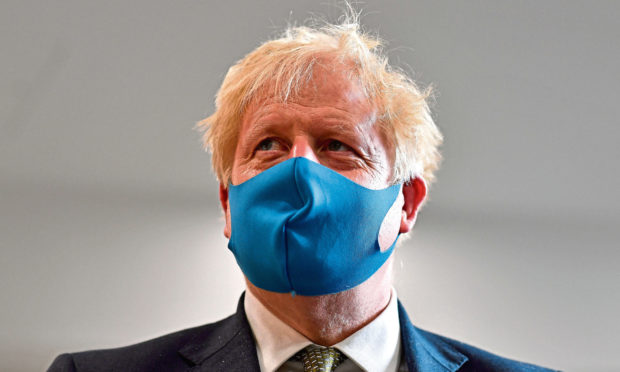Just as Downing Street gets serious about denying devolution, the Scot Nats get busy infighting. Our history is written in tears and jokes.
Michael Gove plans to give the devolved administrations the snip when state aid rules are no longer governed by the EU. He and Johnson want London to control all state aid decisions, which are currently devolved. Belfast, Cardiff and Edinburgh are united in protesting at the move. If you think this is just another spat, you are wrong. It has the potential to be the straw that breaks the Union.
Northern Ireland and Scotland didn’t vote for Brexit, and don’t like the look of our departure. It smacks more of garden-shed invention than geopolitical strategy. Asking them to forsake powers in the name of this new protectorate only riles.
The voters may be slightly oblivious to all this, but it will become the issue that dominates the post-covid world for the Scots, Irish and Welsh. Why, after such inept handling of the lockdown and a stumbling economic recovery, should people trust Downing Street with anything, will be the line.
The virus has cast the Celtic nations as sensible Canada to the reckless Anglo-Saxon American state known as England. The cultural gulf widens, the political trust evaporates. The English U-turn on face masks and Huawei are another blow to the authority of London’s leadership.
Nor will it help Johnson’s diminished standing to have the US presidential elections play out in the autumn, highlighting the risk of electing Trump-like leaders.
Some of the spat over state aid is serious. Edinburgh genuinely values its ability to help businesses. The type that need help, like shipbuilding, also have competitors south of the border.
Some of this is politics. The Brexit promise was not to diminish Holyrood. Edinburgh must soon take a stand somewhere, and this happens to be the issue.
At such a time you’d imagine the Scot Nats were content. Beginning to show consistency in the polls at 50+ for indy, a leader who by luck, spin or capability is judged to have had a good lockdown, and no credible opposition. These should be good times for the nationalist cause.
That analysis leaves out one thing – grumpy old men. Sam Peckinpah liked shooting movies with past-their-best men going for one last job. It makes you wonder if he’s not directing the new nationalist Alliance party. Less the Wild Bunch than the crazy gang.
The new party is finally emerging from the fog of speculation into the light. Veteran SNP man David Thomson says he’s quit the snp and will contest the next holyrood vote under the Alliance for Independence flag. The publicly stated reason is that for every constituency seat the snp win, they lose out on the list. If another party existed to mop up those list votes, then holyrood could be all indy. Hence the need for the new party
The flaws to this are myriad. The new party is appealing to people loyal to the SNP, yet asks them to go vote against the SNP on the list. The message from the nationalist camp will become blurred. Voters will confuse personnel from one party for the other.
Nonetheless expect to see haggard political cowboys “reluctantly” sign up to the new cause for one last shot. With a shrug of the shoulder and a suck on the toothpick, they’ll tell Scotland that it’s the only way to go, and suggest Nicola Sturgeon should be grateful for their effort.
I suspect what’s really happening is a number of Nats who have grown unhappy with Sturgeon for her policies, her referendum strategy and for not being Alex Salmond are creating a vehicle which will propel their old hero back into the picture.
It can only end in disaster. Even if the next parliament is crammed with pro-indy MSPs, that’s no guarantee of progress for the cause. If, all told, they are elected on less than 50% of the vote, it would not be enough to change the current impasse between London and Edinburgh.
The block is legal. London has the power to authorise a second referendum. It was exactly this point which stopped Salmond as first minister from publishing a referendum bill in the 2007-2011 administration, and which was only resolved by then PM David Cameron in 2012 when he said a vote could go ahead.
There is no reason to think Boris Johnson will ever do the same. He’s not going to be swayed by the reappearance of some old nats under a new name.
Tory unionists think any second referendum with Boris as PM can only be lost, so they won’t countenance one. He’s toxic to the unionist cause in Scotland.
For a second referendum to go ahead, either Boris has to go, or Scotland has to show consistent popular support for one at around 60% in the polls. That is the level at which it is reckoned London would look anti-democratic to refuse one. How the Crazy Gang reckon they can help this is not clear – but it may propel some raddled men back into power, by complete coincidence.



